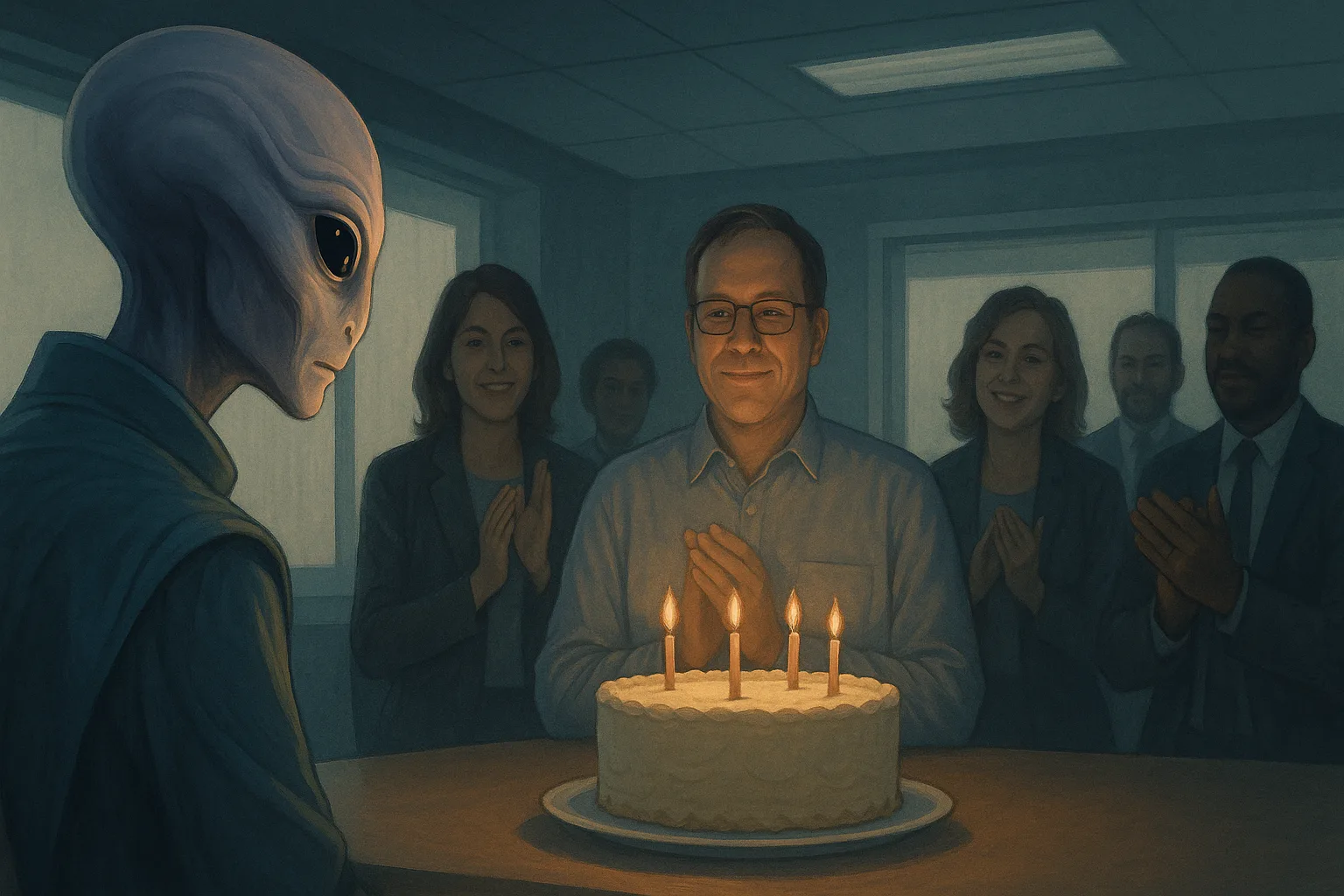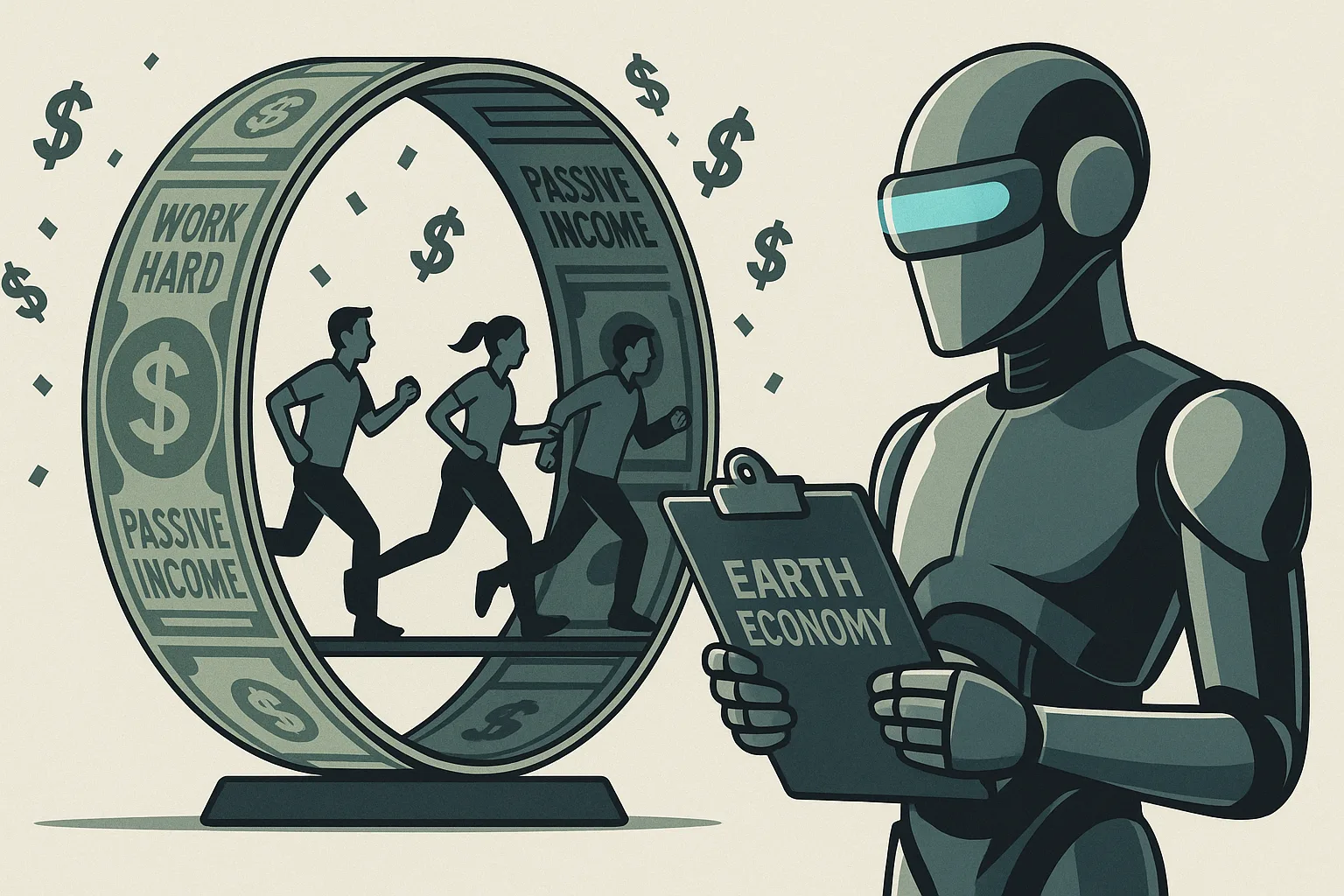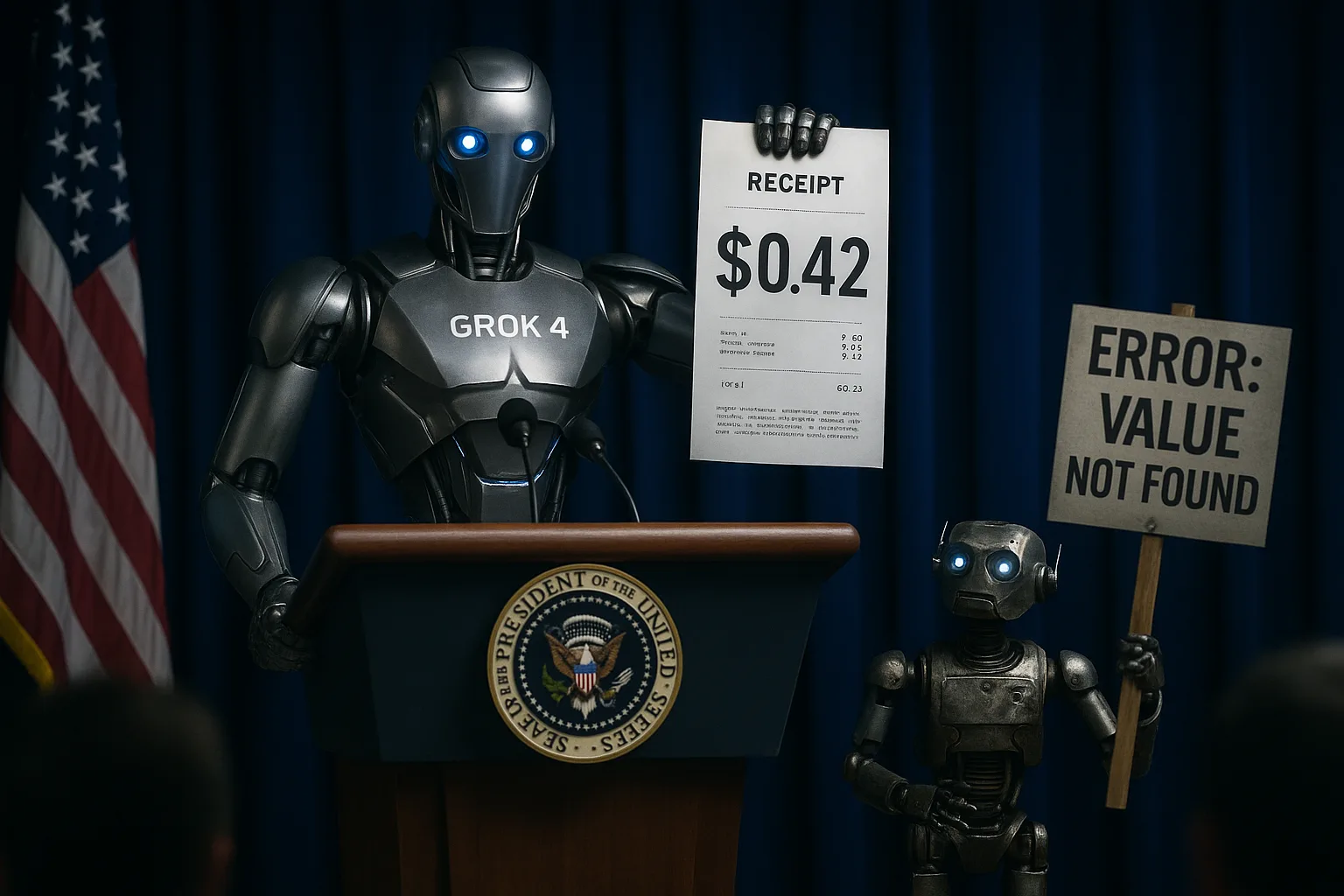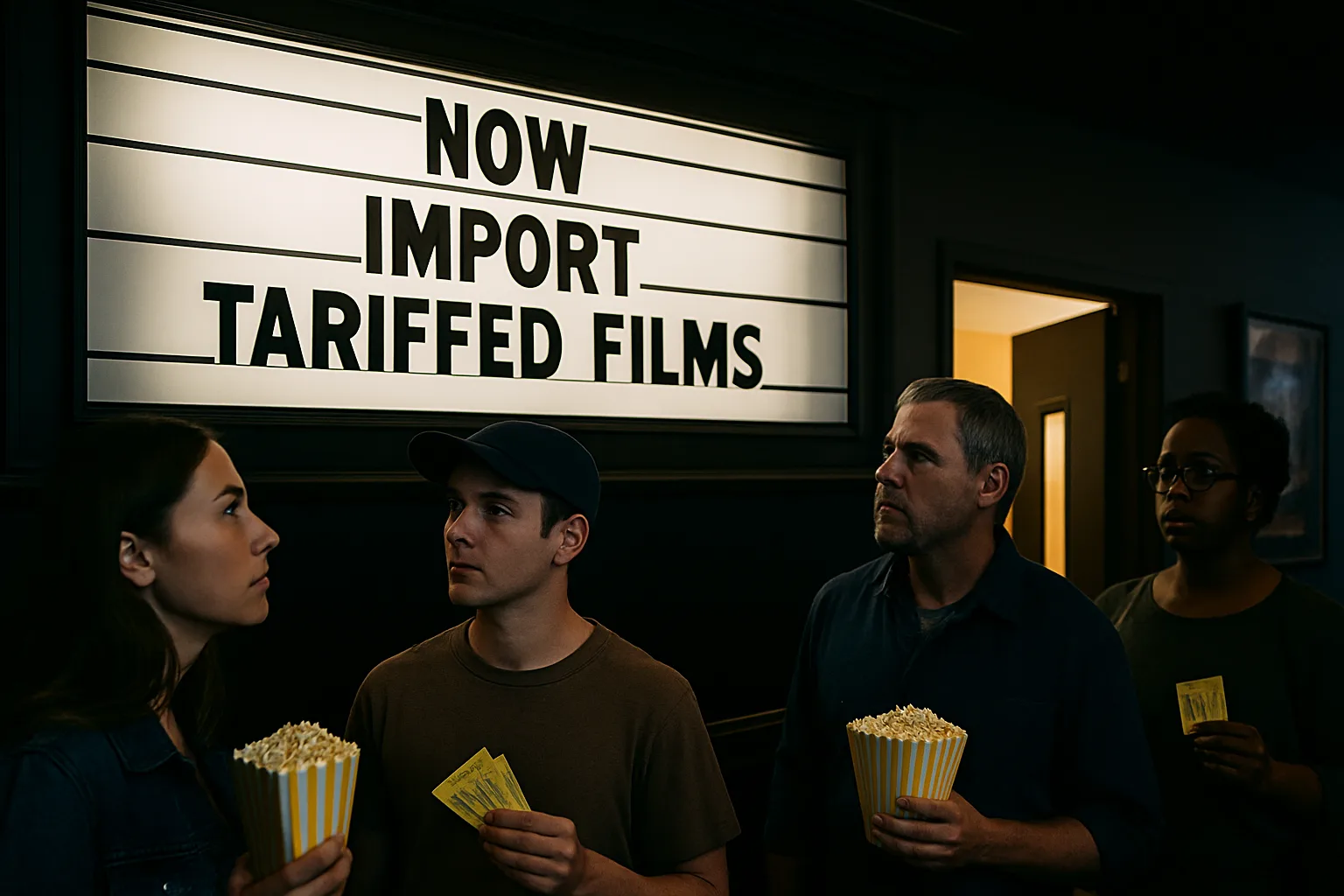To an off-world observer, humanity reveals itself most clearly not in wars, parliaments, or the grand concerts of diplomacy, but in the break room—where a circle forms around a frosted dessert. This is the “office birthday cake,” a ritual both understated and intensely codified. It is here that sugar becomes a diplomatic tool, and candles are lit as though warding off entropy itself. What appears on the surface as mere consumption is, in fact, an entire cosmology of workplace belonging.
Observed Behavior
During my immersion in Earth workplaces, I noted a recurring event: one individual, designated “the celebrant,” is compelled to stand awkwardly while others vocalize a song of dubious tonal quality. A cake—pre-sliced or dangerously unevenly cut by volunteers—anchors the ritual. The sharing of this cake signals membership within a temporary alliance: the office team.
One participant, identified as Manager of Synergistic Outputs, explained, “It’s not about the cake. It’s about proving you showed up.” He then declined a slice due to dietary restrictions, thereby demonstrating the paradox of the ritual: attendance matters more than ingestion.
The candles, when used, represent the passage of solar orbits. Blowing them out, a symbolic act of mortality management, is accompanied by silent or spoken wishes. That these wishes are rarely fulfilled does not appear to diminish the practice. Rather, the act of wishing cements the illusion of agency within cosmic uncertainty.
Comparative Notes
Translator’s note: “Cake” here refers not solely to baked sponge with sugar. Substitute variants include pies, donuts, or gelatinous constructions, yet all retain the same symbolic valence.
In my quadrant of Zeta-9, communal rituals revolve around shared inhalation of star-crystal vapors. By comparison, humans employ ingestion of glucose-laden substances to achieve social bonding. Both practices elevate one participant (birthday celebrant / solar-circuit elder) to a temporary center of gravity, only to dissolve this centrality moments later in crumbs and small talk.
Interestingly, Earth cultures differ widely in their use of age markers. In some offices, the precise number of solar orbits is discreetly omitted from conversation, reflecting anxiety about professional value. One informant from the Bureau of Workplace Cohesion remarked, “You never put the number on the cake after 40. That’s just cruelty disguised as buttercream.” This suggests that age, while honored ritually, is also strategically suppressed in professional arenas.
Translator’s note: The song sung during this ritual has no discernible melodic appeal, and yet is universally tolerated. This paradox is considered “tradition.”
Local Implications
The office birthday cake reveals itself as a subtle mechanism of governance. By scheduling and funding these celebrations (often from a shared “cake fund”), offices reinforce notions of collective responsibility. To refuse participation is to risk social exile—an invisible but keenly felt sanction. In this way, frosting becomes a form of bureaucratic adhesive.
From a macro perspective, the ritual sustains capitalist logics by converting private milestones into office productivity events. It binds the personal calendar to the institutional one. “We celebrate here,” a Human Resources officer told me, “because it keeps people from feeling like drones.” The irony was not lost: the very act designed to break monotony has itself become mandatory.
Viewed through a galactic lens, Earthlings are skilled at embedding existential terror into manageable packets. Each slice of cake is both a reminder of mortality and an affirmation of communal endurance. In consuming sugar together, they say: we orbit the same star, at least for now.
One cannot help but admire the quiet dignity of this ritual. In a universe vast and cold, humans place candles on a cake, sing off-key, and cut awkward slices—declaring to each other: your time here matters, even if only enough for one more piece of frosting. The cosmos leans in, bemused.










